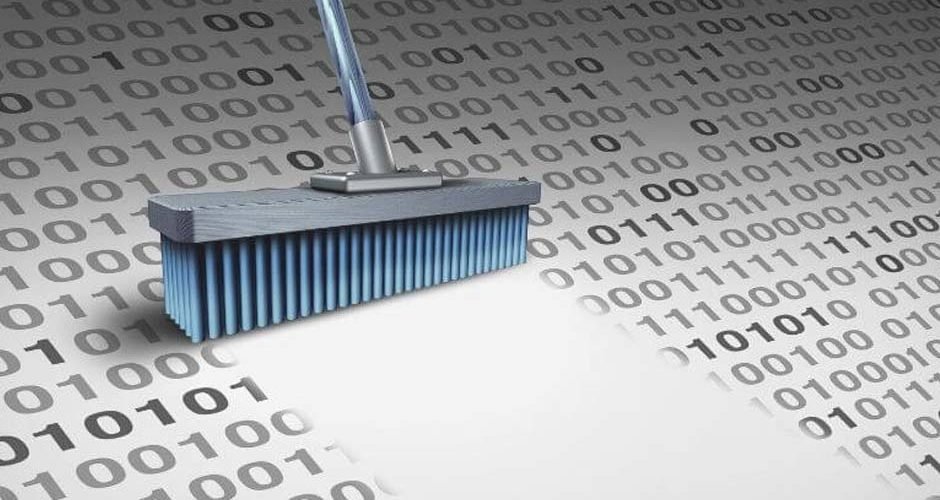So you’ve decided it’s time to delete that old social media account once and for all. You’ve moved on from those embarrassing posts of years past and no longer wish to be haunted by your digital footprint. But simply deleting your account may not be enough. Those companies have likely stored your data and could access it even after you’ve said your virtual goodbyes. What you need is a def delete – a permanent purge of your personal information from the internet ether. We’re talking scorched earth style. In this article, we’ll show you how to not just delete but def delete your accounts and data from the prying eyes of tech companies and hackers alike. Your future self will thank you, as will anyone else who may stumble upon what you wish had stayed in the past. The time for a fresh digital start is now.
Table of Contents
Why You Should Permanently Delete Your Data
Permanently deleting your data is more important than ever these days. Why should you take the time to thoroughly purge your info? Here are a few key reasons:
Privacy and Security
With data breaches happening left and right, do you really want your personal information floating around the dark web? Bank statements, medical records, passwords – once deleted, that sensitive data can’t be stolen or misused.
Permanently wiping your data also ensures that no one can recover or restore that information in the future. Whether it’s an old phone, laptop or external storage device, use a secure erasure tool to overwrite and obliterate your data beyond recovery.
A Clean Slate
Starting fresh with a clean slate can be liberating. Purging old messages, photos, browsing history and more gives you a chance to reorganize and declutter your digital life. It’s an opportunity to create better habits and break old cycles. Let go of the past and focus on the now.
Peace of Mind
Knowing that your data has been thoroughly and irrevocably erased will give you peace of mind and help you rest easy. No more worrying about that old device ending up in the wrong hands or what might happen if you were to pass away unexpectedly. Permanent deletion gives you closure and control over your data.
In summary, permanently purging your personal information is one of the best ways to protect your privacy, improve security, gain a fresh start, and achieve total peace of mind. Make def deletion a priority and take back control of your data destiny today.
How to Completely Remove Data From Your Devices
To truly wipe your data from your devices for good, you’ll need to put in some effort. But take it step-by-step and you’ll have a fresh start in no time.
Factory Reset Your Devices
The first thing you’ll want to do is perform a factory reset on all your gadgets – your phone, tablet, computer, smart watch, you name it. A factory reset will delete all your accounts, apps, photos, messages, and restore your device to like-new condition. Make sure you backup anything important first!
Delete Your Accounts
Next, log in to all your social media, email, streaming and other online accounts and delete them. Don’t just deactivate – delete. This means going through the proper channels for each service to completely close your account. Your data may still exist in their records, but at least your profiles and content will be gone.
Scrub Your Storage
If you have an external hard drive, USB drive or other storage media, do a secure erase to overwrite your data. For Macs, use Disk Utility to erase free space. On Windows, use a tool like Eraser or CCleaner to wipe deleted files and overwrite unused space.
Stay Vigilant
Even after following all these steps, there’s a chance some of your data may still exist in cached or archived form out there on the internet. Continue to monitor for any unauthorized access of your accounts or personal information. And if anything from your digital past does surface, take action right away to have it removed.
With some diligent work, you can successfully purge yourself from the digital world and start fresh. The peace of mind will be worth the effort!
Best Practices for Maintaining Your Online Privacy
When it comes to maintaining your online privacy, a few best practices will help keep your data secure.
Use strong, unique passwords
Use a password manager to create complicated, unique passwords for all your accounts. Reusing the same password across sites puts you at risk if any one account is compromised. Aim for at least 12 characters including a mix of letters, numbers and symbols.
Enable two-factor authentication
Two-factor authentication, or 2FA, adds an extra layer of security for your logins. It requires not only your password but also a code sent to your phone or an authentication app. Enable 2FA on any account that offers it, like email, social media, banking, etc. This makes it much harder for hackers to access your accounts.
Be cautious of what you share
Think before you post on social media or share personal information with apps and services. Once data is out there, it’s out of your control and can be seen by more eyes than you intend. Only share things publicly that you’d be okay with anyone seeing and using. Be wary of oversharing on social media, as this data can often be mined.
Review privacy policies
Take the time to read through the privacy policies of any websites, apps or services before signing up or using them. Look for details on what data they collect and how they use it. If a policy is vague or allows them to share your data in ways you’re uncomfortable with, it may be best to avoid that product. Your data and privacy are valuable, so choose companies that respect that.
Following these best practices for online privacy and being cautious about what digital trails you leave behind can help give you more control over your data and peace of mind. While the internet may remember forever, that doesn’t mean you have to make it easy to find.
Conclusion
So there you have it, the basics to permanently delete your data. While it may seem like a hassle, taking the time to properly wipe your devices and accounts is worth the effort for your security and privacy. You never know how that old laptop or phone may end up in someone else’s hands, and you certainly don’t want your personal information floating around the internet forever. Do yourself a favor and def delete – your future self will thank you. The internet doesn’t forget, but with the right tools and techniques you can make sure your data does.





